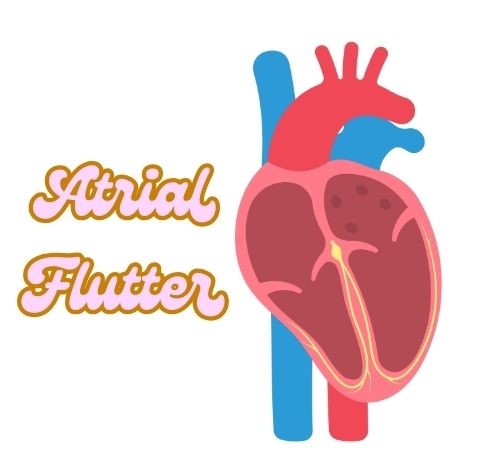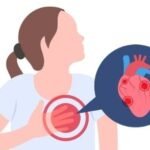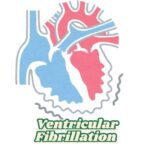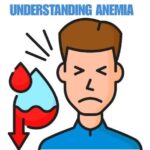What is Atrial Flutter?
Atrial flutter is a type of supraventricular tachycardia, characterized by a rapid and organized electrical activity in the atria, the heart’s upper chambers. This condition results in an irregular heartbeat and can lead to complications similar to those associated with atrial fibrillation. Atrial flutter is often seen in patients with underlying heart conditions, but it can also occur in individuals with no prior heart disease.
Types of Atrial Flutter
- Typical Atrial Flutter: This is the most common form, often associated with a reentrant circuit around the right atrium. It typically presents with a characteristic “sawtooth” pattern on an ECG, often referred to as “F-waves.”
- Atypical Atrial Flutter: This type can occur in various areas of the atria and is less common. It may not have the classic sawtooth appearance and can be more challenging to diagnose.
Causes of Atrial Flutter
Atrial flutter can be triggered by various factors, including:
- Underlying Heart Conditions:
- Coronary Artery Disease: Reduced blood flow can affect the heart’s electrical system.
- Heart Failure: Increased pressure and volume in the heart can lead to electrical disturbances.
- Valvular Heart Disease: Issues with the heart valves can disrupt normal electrical pathways.
- Previous Heart Surgery: Surgical alterations can create scar tissue, leading to arrhythmias.
- Other Medical Conditions:
- Hyperthyroidism: An overactive thyroid can accelerate the heart rate and trigger flutter.
- Chronic Lung Diseases: Conditions such as COPD can strain the heart and contribute to arrhythmias.
- Lifestyle Factors:
- Excessive Alcohol Consumption: Binge drinking can lead to episodes of atrial flutter.
- Obesity: Higher body weight is linked to increased risk for atrial flutter.
- Caffeine and Stimulants: High intake may provoke arrhythmias in sensitive individuals.
- Electrolyte Imbalances: Low levels of potassium, magnesium, or calcium can disrupt normal heart rhythm.
Symptoms of Atrial Flutter
Symptoms can vary significantly among individuals. Common manifestations include:
- Palpitations: A feeling of rapid or irregular heartbeats.
- Dizziness or Lightheadedness: Often due to inadequate blood flow to the brain.
- Shortness of Breath: Can occur at rest or during exertion.
- Fatigue: A general feeling of tiredness or reduced exercise tolerance.
- Chest Pain or Discomfort: May occur, particularly in those with underlying heart disease.
In some cases, atrial flutter may be asymptomatic and discovered incidentally during an ECG.
Diagnosis of Atrial Flutter
Diagnosing atrial flutter typically involves the following:
- Medical History and Physical Exam: The healthcare provider will assess symptoms, medical history, and any risk factors.
- Electrocardiogram (ECG/EKG): The primary diagnostic tool for atrial flutter, an ECG will typically show the characteristic F-waves and a rapid atrial rate.
- Holter Monitor: A portable ECG device worn for 24-48 hours can help capture episodes of atrial flutter.
- Echocardiogram: An ultrasound of the heart can assess its structure and function, helping to identify any underlying conditions.
- Blood Tests: To check for electrolyte imbalances, thyroid function, and other potential contributing factors.
Treatment Options for Atrial Flutter
Treatment for atrial flutter focuses on restoring a normal heart rhythm and preventing complications such as stroke. Options include:
- Medications:
- Rate Control: Beta-blockers and calcium channel blockers can help slow the heart rate and reduce symptoms.
- Rhythm Control: Antiarrhythmic medications (e.g., amiodarone, flecainide) may be used to restore normal heart rhythm.
- Anticoagulants: Blood thinners (e.g., warfarin, dabigatran) are often prescribed to reduce the risk of stroke.
- Electrical Cardioversion: A procedure that delivers an electrical shock to the heart to restore normal rhythm, typically performed under sedation.
- Catheter Ablation: A minimally invasive procedure that targets and destroys the abnormal electrical pathways in the heart, often providing a long-term solution for atrial flutter.
- Lifestyle Modifications: Patients are encouraged to adopt healthier lifestyle choices, including:
- Reducing alcohol and caffeine intake
- Managing stress through relaxation techniques
- Maintaining a healthy weight
Complications of Atrial Flutter
Atrial flutter can lead to several serious complications, which can significantly affect overall health and quality of life. Here’s a closer look at the primary complications associated with atrial flutter:
1. Stroke
- Mechanism: The irregular heart rhythm in atrial flutter can cause blood to pool in the atria, leading to the formation of blood clots. If a clot breaks loose, it can travel to the brain and cause a stroke.
- Statistics: Patients with atrial flutter are at a higher risk of stroke compared to the general population. This risk is especially pronounced in individuals with additional risk factors, such as hypertension, diabetes, or previous strokes.
- Prevention: Anticoagulant medications (blood thinners) are often prescribed to reduce the risk of stroke in patients with atrial flutter.
2. Heart Failure
- Impact on Heart Function: Atrial flutter can lead to a rapid heart rate that may weaken the heart muscle over time. This can result in heart failure, where the heart cannot pump blood effectively.
- Symptoms: Patients may experience fatigue, shortness of breath, and fluid retention, significantly impairing daily activities and quality of life.
- Management: Controlling the heart rate and rhythm, along with lifestyle modifications, is essential in preventing heart failure.
3. Cognitive Decline and Dementia
- Potential Connection: Emerging research suggests a link between atrial flutter and an increased risk of cognitive decline and dementia. This may be due to inadequate blood flow to the brain or the effects of strokes.
- Mechanism: Chronic episodes of poor blood circulation can damage brain tissue over time, leading to cognitive impairments.
4. Other Arrhythmias
- Increased Risk: Atrial flutter may predispose individuals to develop other arrhythmias, such as atrial fibrillation or ventricular tachycardia, complicating the overall management of heart health.
- Impact on Treatment: The presence of multiple arrhythmias can require more complex treatment strategies, including medications and possibly more invasive procedures.
5. Quality of Life Issues
- Physical Limitations: Symptoms such as palpitations, fatigue, and shortness of breath can significantly limit physical activity, leading to a sedentary lifestyle.
- Psychological Effects: The unpredictability of atrial flutter episodes can cause anxiety and depression. Patients may feel a lack of control over their health, impacting their overall mental well-being.
- Social Withdrawal: Fear of episodes occurring in public or during activities may lead individuals to withdraw from social interactions.
6. Complications from Anticoagulant Therapy
- Bleeding Risks: Patients on anticoagulants to prevent strokes face an increased risk of bleeding complications, including:
- Gastrointestinal Bleeding: Common in patients taking blood thinners, particularly older adults.
- Intracranial Hemorrhage: A more severe risk, where bleeding occurs in the brain.
- Management: Regular monitoring of blood levels and careful management of anticoagulant dosages are essential to mitigate bleeding risks while ensuring effective stroke prevention.
7. Economic Impact
- Healthcare Costs: Managing atrial flutter and its complications can lead to significant healthcare costs, including:
- Frequent Doctor Visits: Regular check-ups and monitoring.
- Medications: Long-term costs associated with managing arrhythmias and preventing complications.
- Hospitalizations: Emergency care or hospital stays for complications like stroke or heart failure can add to financial burdens.
Atrial flutter can lead to a range of serious complications that can significantly impact health and well-being. Recognizing these risks is essential for effective prevention and management. Regular medical evaluations, appropriate treatments, and lifestyle modifications can help mitigate these complications, allowing individuals with atrial flutter to maintain a better quality of life. If you have atrial flutter or are experiencing related symptoms, consulting a healthcare professional is vital for a comprehensive approach to care.
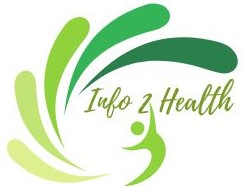
Atrial flutter is a common arrhythmia that can have significant implications for heart health. Understanding its causes, symptoms, and treatment options is vital for effective management. If you suspect you have atrial flutter or are experiencing related symptoms, consulting a healthcare professional is essential for a thorough evaluation and personalized care. With appropriate treatment and lifestyle modifications, many individuals can manage atrial flutter successfully and maintain a good quality of life.
For same topics click here

